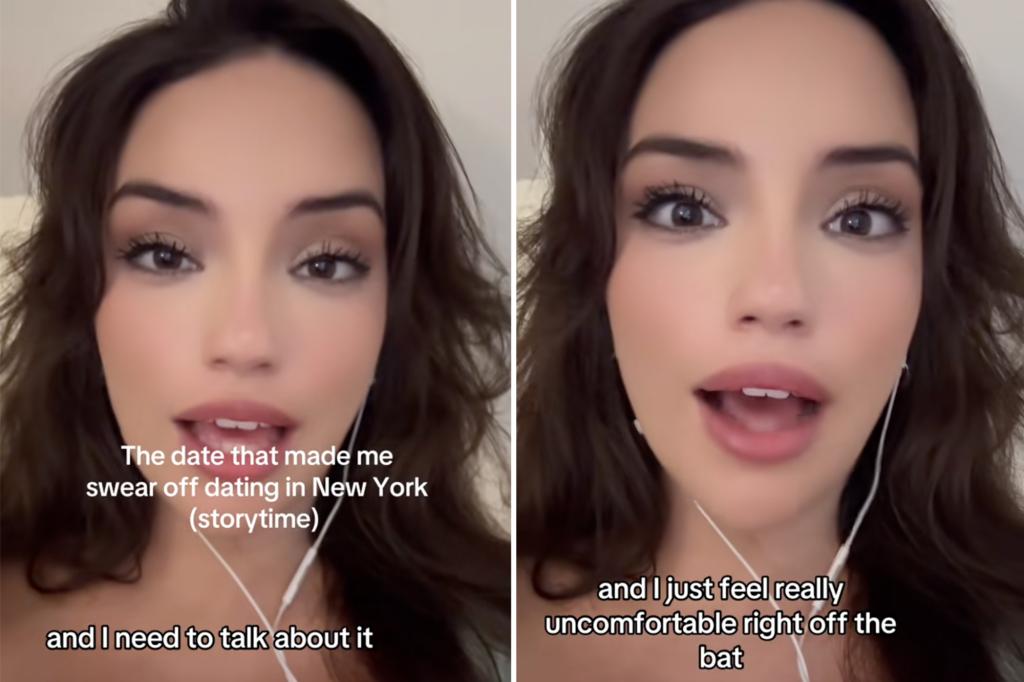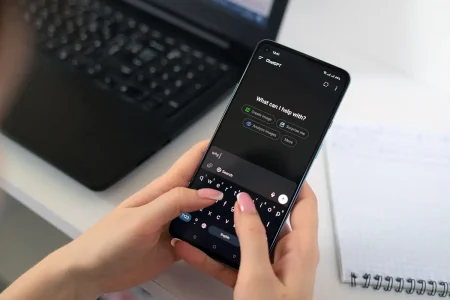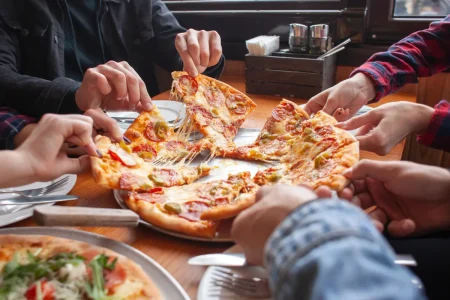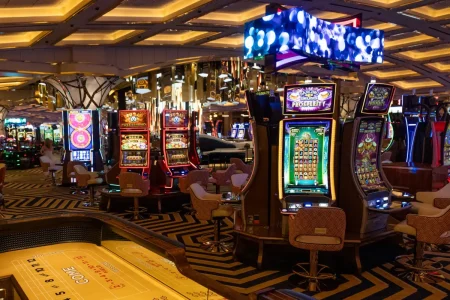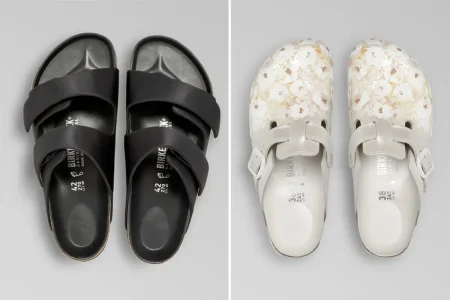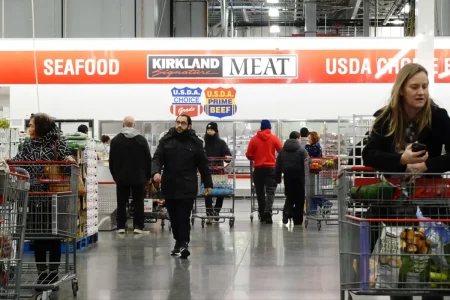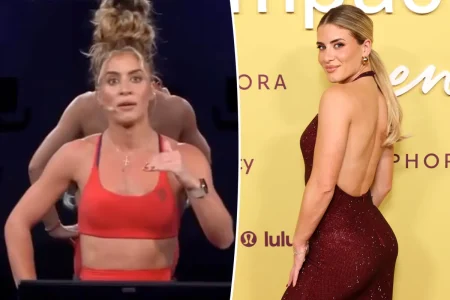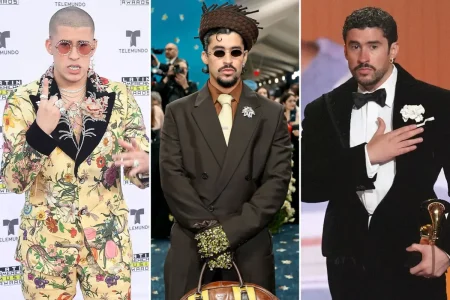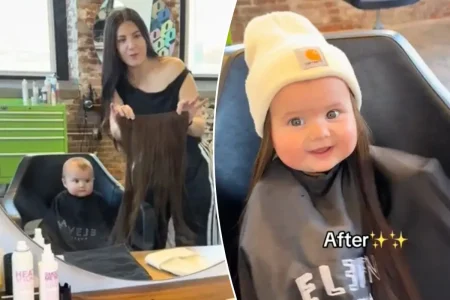Navigating the Minefield of Modern Dating: Tales from the Frontlines
In today’s digital era, dating has evolved into something far more complex than simply meeting someone and forming a connection. For many young adults, especially those in Gen Z, navigating the dating landscape can feel like walking through a minefield of red flags, awkward encounters, and downright bizarre experiences. Two recent viral stories highlight just how challenging—and sometimes absurd—modern dating can be, particularly for women trying to establish healthy boundaries while searching for meaningful connections.
Caitlin, a 25-year-old woman living in New York City, recently shared her nightmare first date experience that quickly gained over 400,000 views on TikTok. The story began innocently enough when she met a well-dressed 43-year-old man at a bar in the West Village. Despite the age gap being outside her usual preference, she found him charming and agreed to a date the following week. However, what should have been a standard first date quickly devolved into something resembling a business networking event. Upon arriving at the agreed location, Caitlin discovered her date sitting with six of his male friends and two interns from his company. The immediate discomfort she felt was palpable, and though her date eventually requested a separate table for them, the evening only deteriorated from there. His conversation was dominated by self-aggrandizing stories, celebrity name-dropping, and problematic comments about women of different ages—expressing relief that she was 25 because “21 and 22-year-olds can’t keep up with him intellectually,” while dismissing 30-year-olds as “desperate.” As Caitlin described it, watching a 43-year-old behave this way was deeply embarrassing.
The date took an even more concerning turn when, after dinner, her request to end the evening was met with manipulation. When she declined his invitation for another drink, he refused to order her an Uber home unless she continued spending time with him. Against her better judgment, Caitlin agreed to one more stop, where the uncomfortable behavior continued. When she finally decided to leave for good and called her own ride, she overheard one of his friends asking if he had “gotten rid of that girl yet,” revealing that she had merely been an accessory for his ego rather than a genuine romantic interest. The response to Caitlin’s story was overwhelming, with commenters highlighting how the man was simply “showing her off for free” and using her presence to impress his male friends. Many viewers urged her to establish stronger boundaries, recognizing that her beauty and worth deserved much more respect than what this date offered.
The problematic dynamics in Caitlin’s experience reflect broader issues in contemporary dating culture, where power imbalances, particularly those related to age and gender, can create uncomfortable and sometimes unsafe situations. The significant age gap between Caitlin and her date amplified these dynamics, with his treatment of her reflecting outdated and troubling attitudes toward women. His categorization of women by age—dismissing those younger than 25 as intellectually inferior and those over 30 as desperate—reveals a deeply problematic worldview that reduces women to stereotypes rather than seeing them as individuals. This mindset, unfortunately common among certain men in the dating pool, creates a hostile environment where women are valued for their youth and appearance rather than their character or compatibility.
The manipulation tactics employed by Caitlin’s date—specifically the refusal to help with her transportation home unless she complied with his wishes—highlight the concerning power plays that can emerge in dating scenarios. While Caitlin recognized she could get herself home, the pressure she felt to continue the date despite her discomfort speaks to the subtle coercion that many women experience. These tactics, which range from emotional manipulation to outright intimidation, create situations where women may feel compelled to ignore their instincts for safety or politeness. The commenters who noted that Caitlin was “too gorgeous to not have stronger boundaries” touched on an important truth: establishing and maintaining clear boundaries is essential in the modern dating world, regardless of how attractive or kind one might be.
Another viral story from Australian influencer Khristina further illustrates how women are increasingly asserting their expectations in dating scenarios. After a coffee date where her companion didn’t offer to pay for her drink, Khristina decided to cancel their planned follow-up date. When questioned about her decision, she stood firm, stating, “I don’t have an attitude problem. You have a problem with my attitude, which is not my problem.” Her response highlighted an important shift in dating dynamics: women feeling empowered to express their preferences and walk away from situations that don’t meet their expectations. While opinions vary on who should pay on dates, Khristina’s stance was clear—if a potential partner couldn’t or wouldn’t spend $5 on her coffee, she wasn’t interested in pursuing anything further. Her boundary was not about the money itself but what the gesture (or lack thereof) represented to her about his level of interest and generosity.
These stories, while different in their specifics, share common themes that resonate with many in the modern dating world. They reflect the ongoing negotiation of boundaries, expectations, and respect that occurs in the early stages of romantic connections. For many women like Caitlin and Khristina, these experiences serve as valuable learning opportunities about what they will and won’t accept from potential partners. The viral nature of these stories also demonstrates how shared experiences can create community and validation. When viewers comment that “this is just one of many bad dates women have been on lately in today’s bizarre dating world,” they’re acknowledging a collective understanding of these challenges. This sharing of experiences, whether through social media platforms like TikTok or through conversations among friends, helps individuals recognize problematic behaviors and establish healthier standards for their own dating lives. In this way, even the worst dating experiences can serve a purpose—teaching us what we deserve and empowering us to hold out for connections that truly honor our worth.




